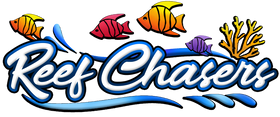DUNCAN CORAL CARE OVERVIEW
LIGHT: MODERATE (150-250 par) Lighting we find best. It is easy to damage coral with too much lighting so in our opinion when it comes to lighting, less is often more for LPS corals. You can learn more about Lighting and it's overall impact on your reef tank in our article Lighting and your Reef Tank
FOOD: Duncan corals have large mouths and will usually benefit from occasional spot feeding, but we do not find that it is required. They like to capture nutrients from the water column and will do best when supplied a healthy amount of food. Our method is high import, high export. You can learn more about Feeding and Filtration in our article Feeding, Filtration and your Reef Tank.
FLOW: MODERATE. Duncan corals do best with moderate indirect flow. We like to see their polyps waving gently but not getting slammed by flow. Too much flow, especially direct flow, can cause damage to the corals tissue or an inability to capture food. You can read more about Flow and its overall impact on your reef tank in our article Flow and your Reef Tank
DIFFICULTY: BEGINNER. Duncan corals do very well in captivity and their are many aqua cultured frags available. That doesn't mean every wild specimen will adapt to captivity but it does mean that many hobbyists have experienced success long term with these types of corals. Duncan corals can be fast growers and will sometimes sprout many heads off a single stalk. Like most corals, they can really thrive when the right combination of Food/Light/Flow and Filtration are achieved, but in our opinion requires a moderate level of reef keeping knowledge.
PRICE: LOW. These easy to keep corals are typically fast growing in comparison to other, slower species. They lack in color and variety and are typically found in varying degrees of green. These factors keep the price low for this excellent addition to your reef tank. Things that may impact price are the size of the colony or frag, the length of the tentacles and the vibrance of their coloration.
COLLECTION ZONE: Indo-Pacific
SCIENTIFIC NAME: Duncanopsammia is a monotypic genus of stony corals. It is represented by the single species, Duncanopsammia axifuga, commonly called whisker coral, duncanops coral, or simply a duncan coral.
AGGRESSION: PEACEFUL. Duncan corals are typically very peaceful and pose little threat to other corals around them. Since they are considered fast growers you should give them ample space for growth when placing a new specimen in your tank.
NATURAL TEMPERATURE: 82 °F / 28 °C although most corals can adapt and survive in temps as low as 77 degrees and as high as 84 degrees. You can read more about temperature and how it affects your reef tank in our article Temperature and your Reef Tank.
PH: Recommend 8.0-8.4, we tend to run around 8.2-8.3 over 24 hours. You can read more about pH in our article pH and your Reef Tank
NITRATE: 10-20, try to keep stable. You can read more about nitrate and our approach to maintaining it in our article Nutrients and your Reef Tank
PHOSPHATE: 0.1-0.2, try to keep stable. You can read more about Phosphate and our approach to maintaining it in our article Nutrients and your Reef Tank
ALKALINITY: Recommend 8-9 dKh. You can read more about how we maintain our alkalinity in our article Alkalinity, Calcium and your Reef Tank
CALCIUM: Recommend 430-460. You can read more about how we maintain our calcium in our article Alkalinity, Calcium and your Reef Tank
MORE ABOUT DUNCAN CORALS



Through their symbiotic relationship with a photosynthetic algae, known as zooxanthellae, they receive many of their nutrients. They also filter-feed on the nutrients in the water column. It is a good idea to provide them with additional foods like microplankton or other foods designed for filter-feeding invertebrates.


